Are any of your succulents toxic to pets? Those shown on this page are considered to be.
NOTE: This page is not a substitute for veterinary advice. Factors such as quantity ingested, animal weight and allergies determine what's poisonous to a particular pet. If you think yours ate something potentially toxic, call Animal Poison Control at (888) 426-4435 or seek immediate veterinary treatment.
Know plant names
The first question you'll be asked is, "What kind of plant is it?" Even if you take it along, the veterinarian may not know its name. When time is of the essence, you don't want it spent going through lists. Beforehand (i.e. now), check to see if any of the succulents your pets may come into contact with are shown here.
RESources
ASPCA Toxic and Non-Toxic Plants
Both resources list types of plants (all, not just succulents) that veterinarians often encounter. Lists are alphabetical by common names---which unfortunately can be numerous and confusing---followed by genus and species. Since a plant can have only one Latin name, that's what I use.
Succulents toxic to pets
Dogs or cats that ingest these may experience vomiting, diarrhea and lethargy. Photos below show a representative specimen; click headers to see many more species.
Adenium
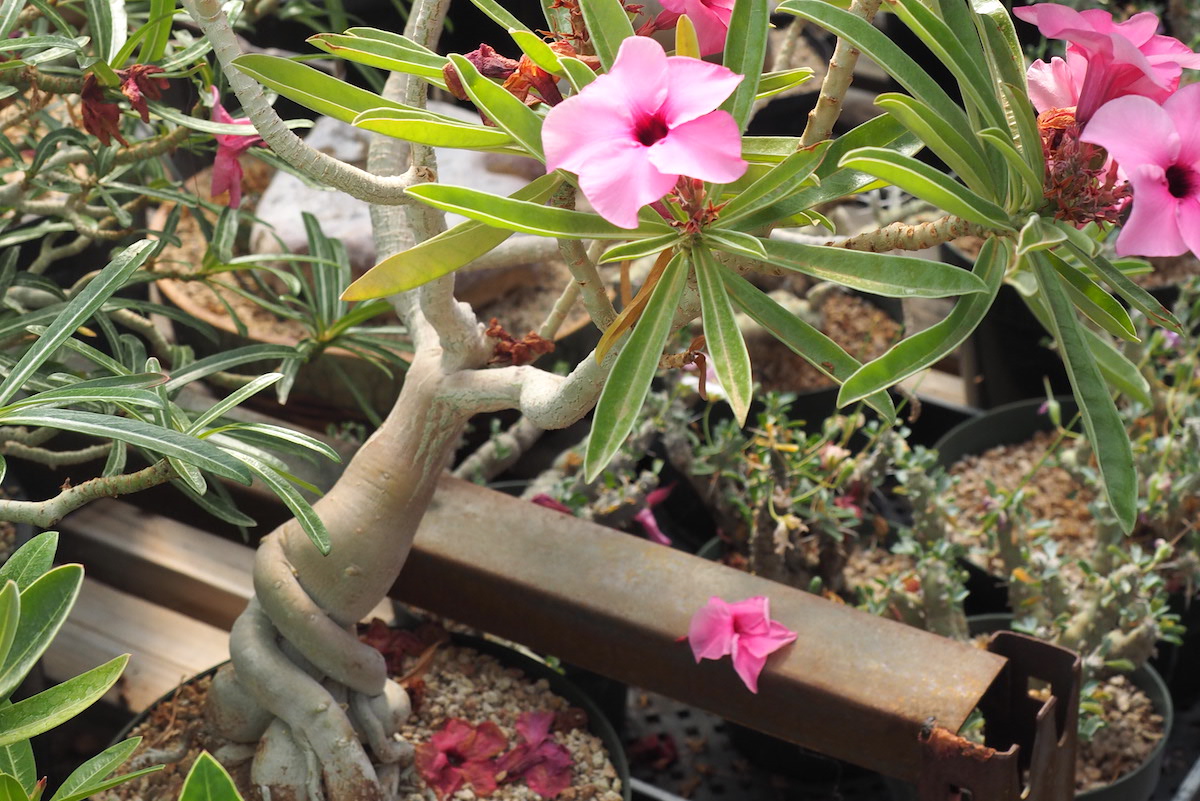
Adenium obesum
Agave
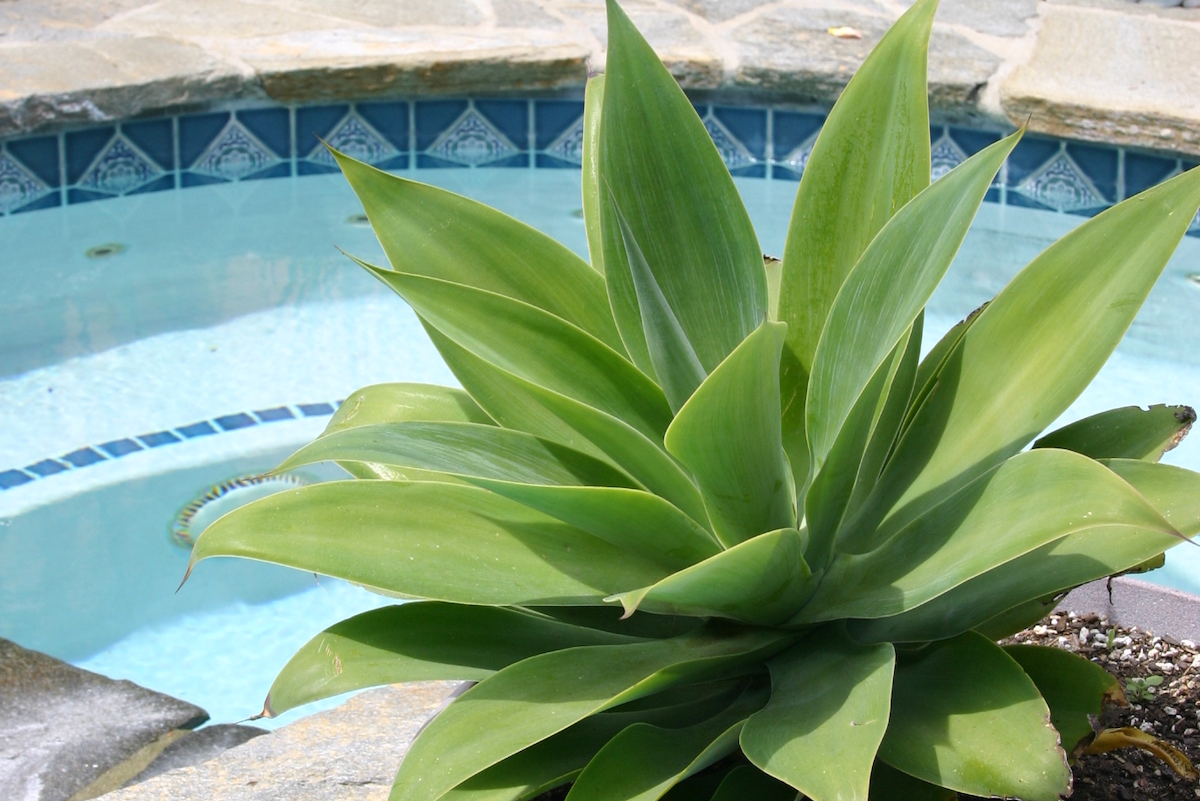
Agave attenuata
Aloe
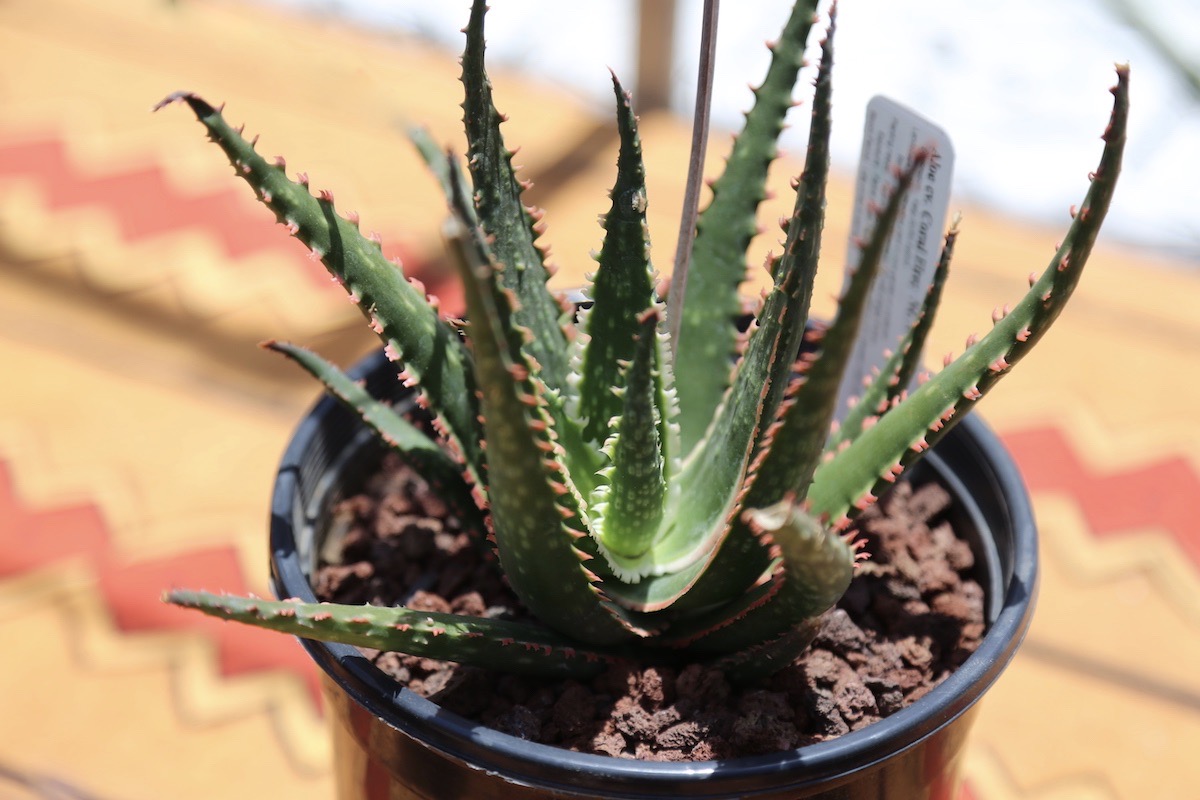
Aloe cv. 'Coral Fire'
Crassula
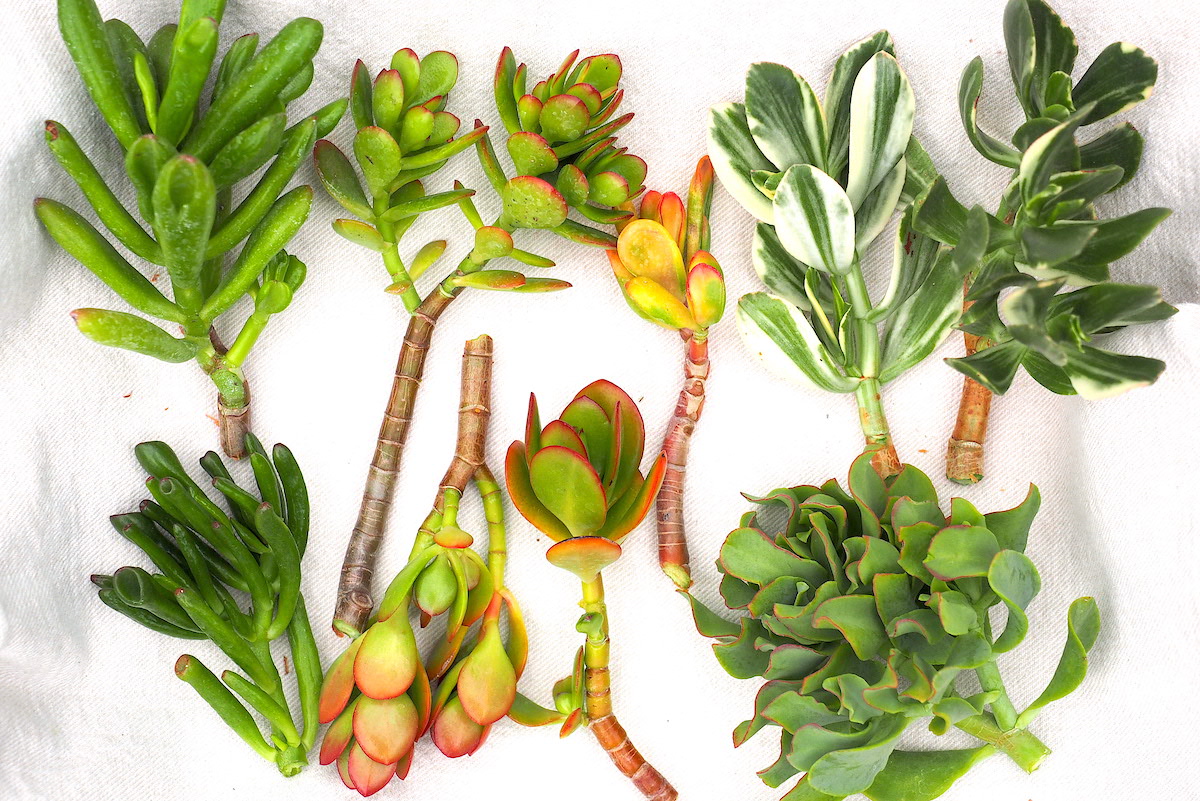
Crassula cuttings (Jade plants)
Euphorbia
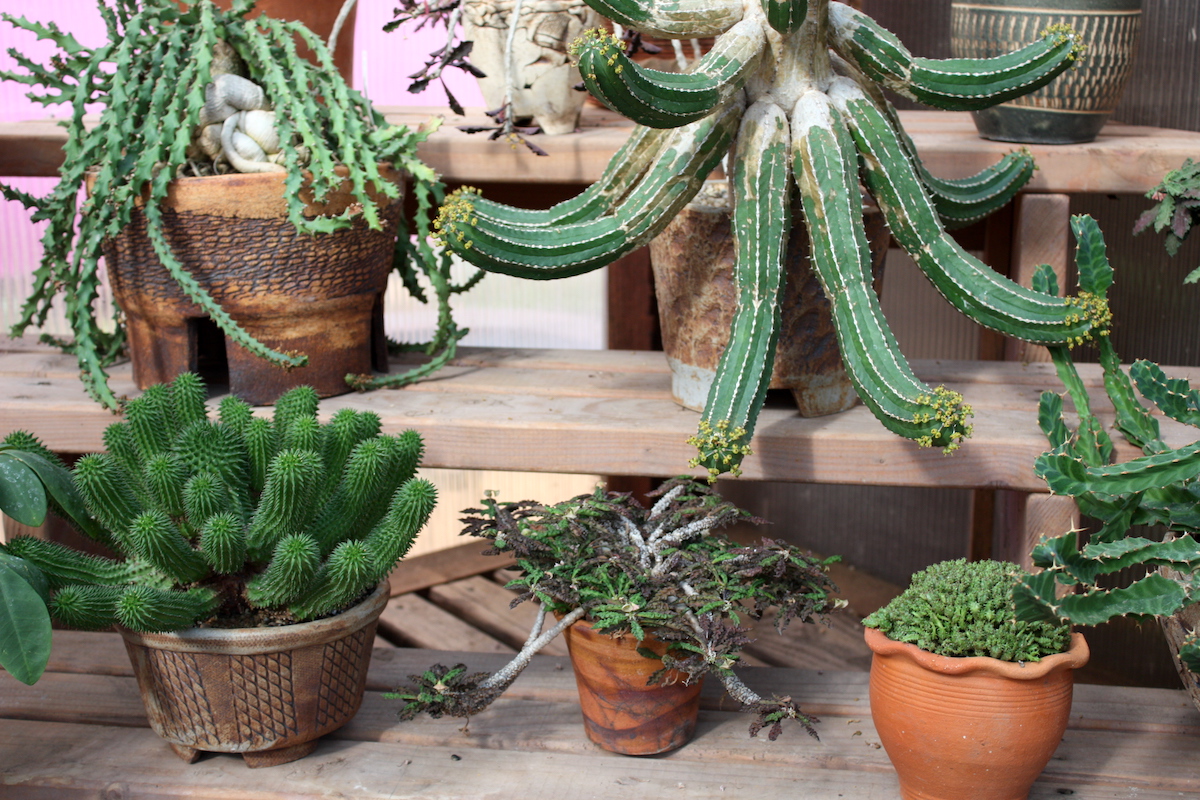
Euphorbia collection
Kalanchoe
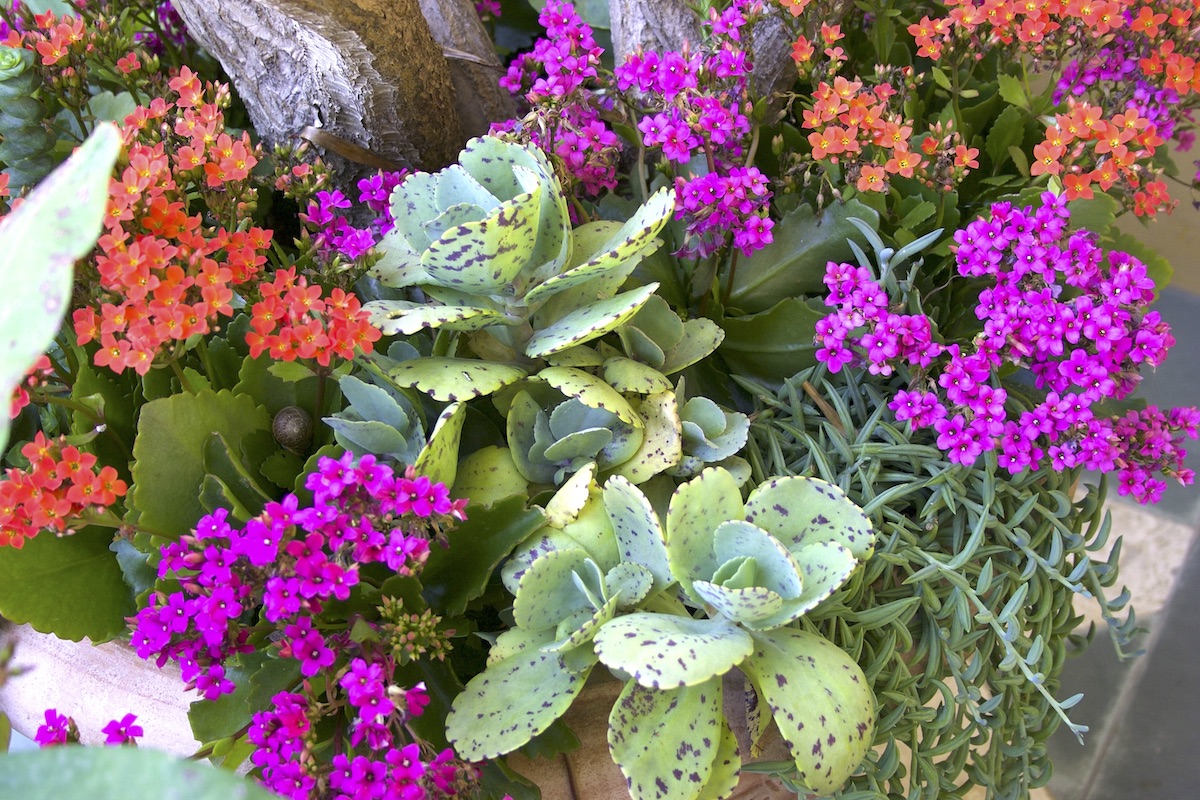
Kalanchoe blossfeldiana and Kalanchoe marmorata
Sansevieria
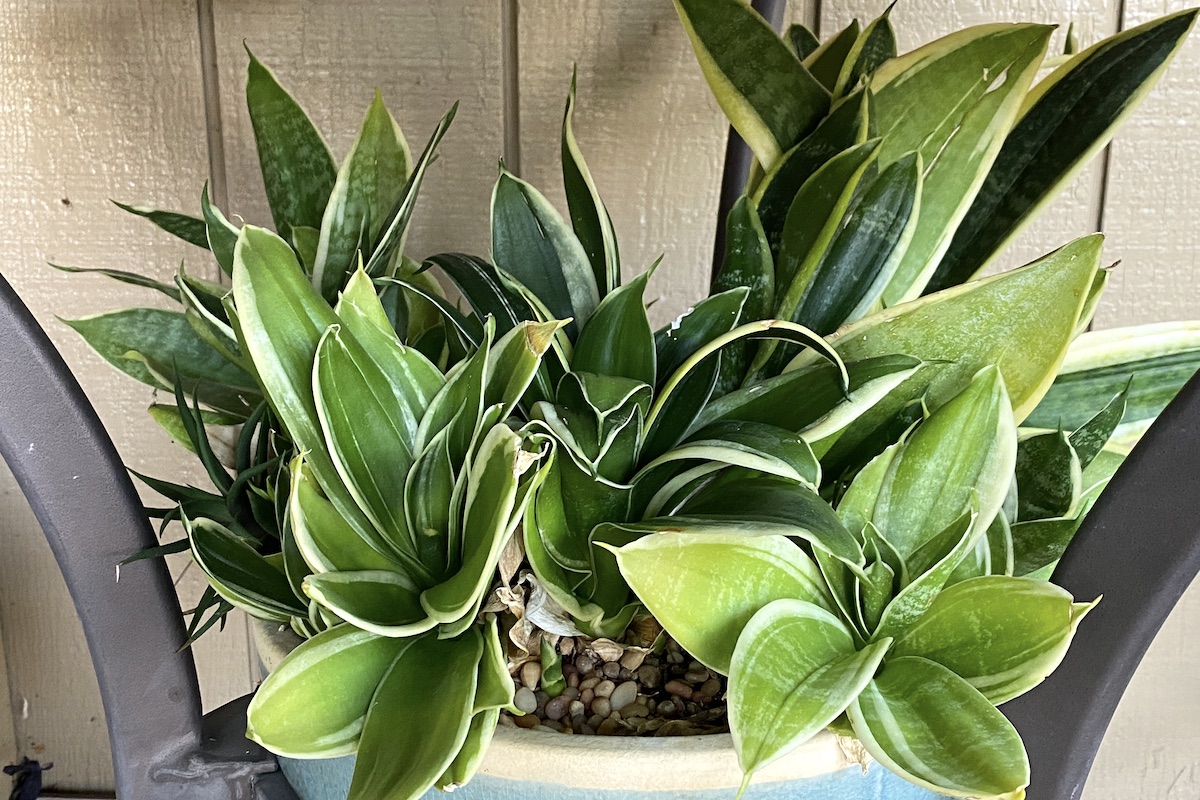
Sansevierias (mother-in-law's tongue, snake plant)
Portulaca
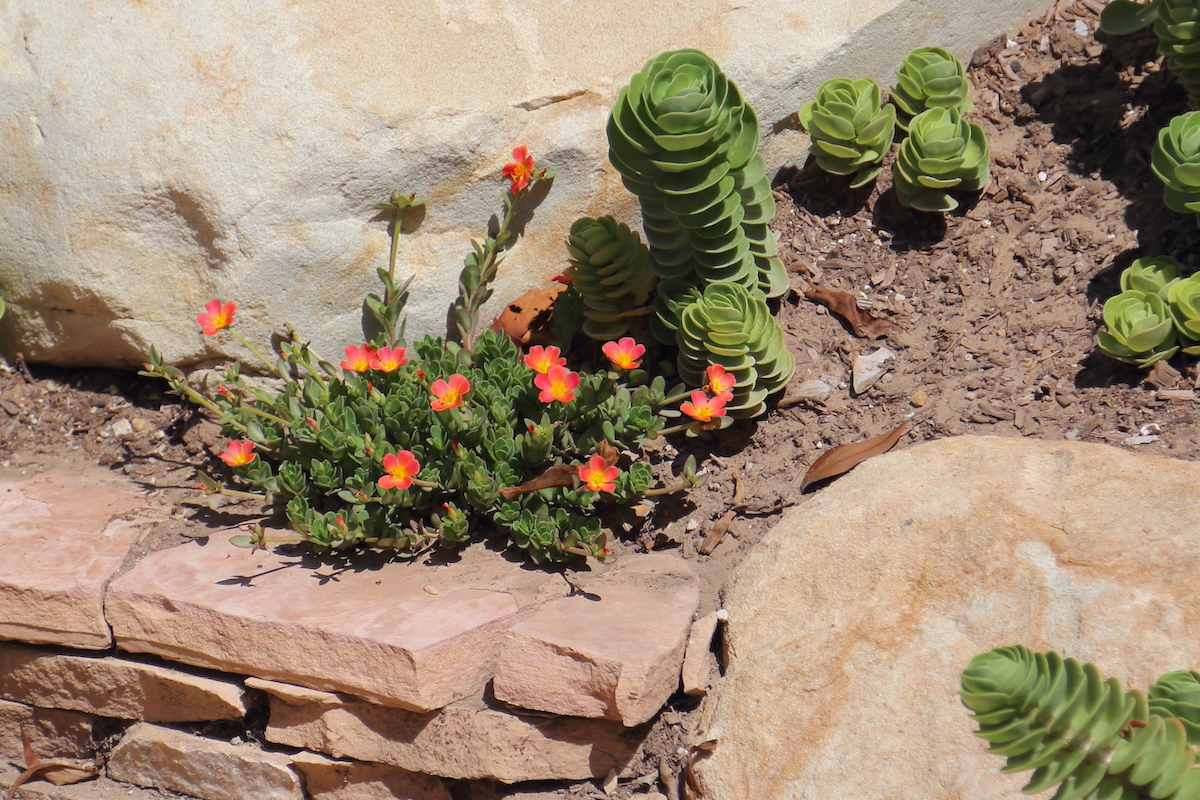
Portulaca, two kinds
Senecio
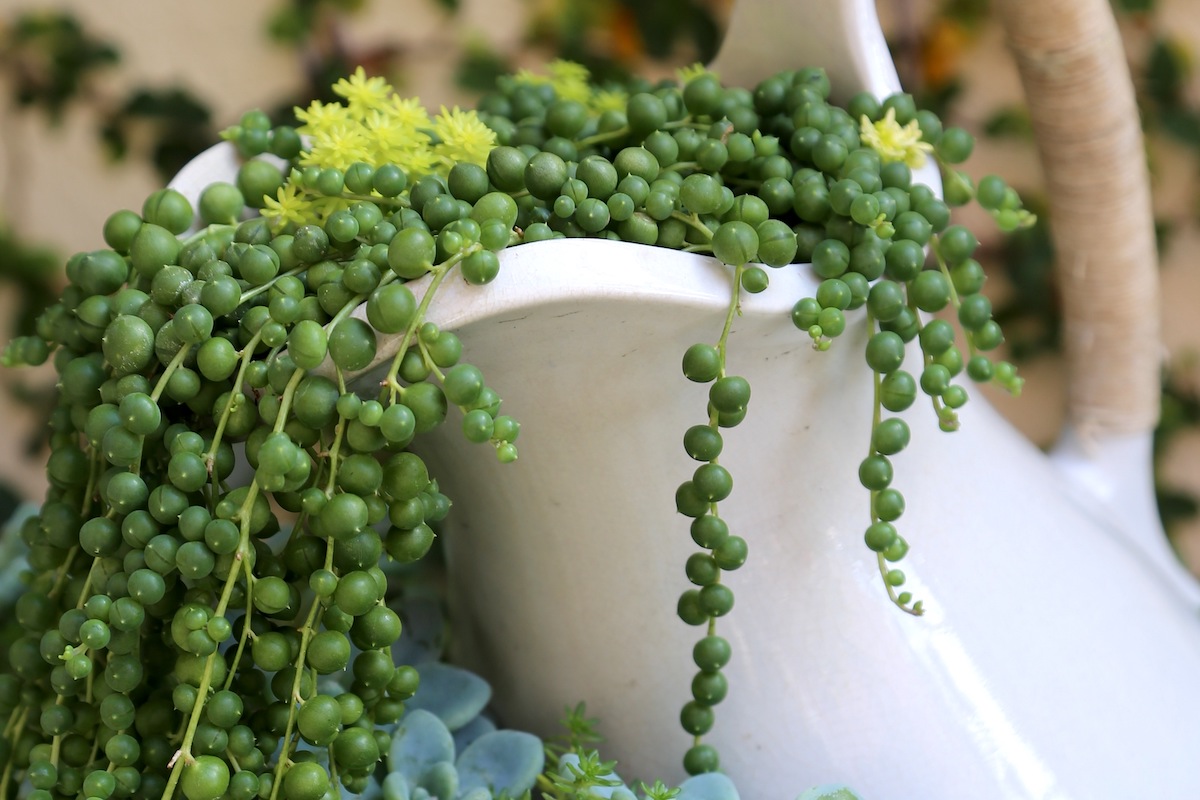
Senecio rowleyanus (string of pearls)
Yucca
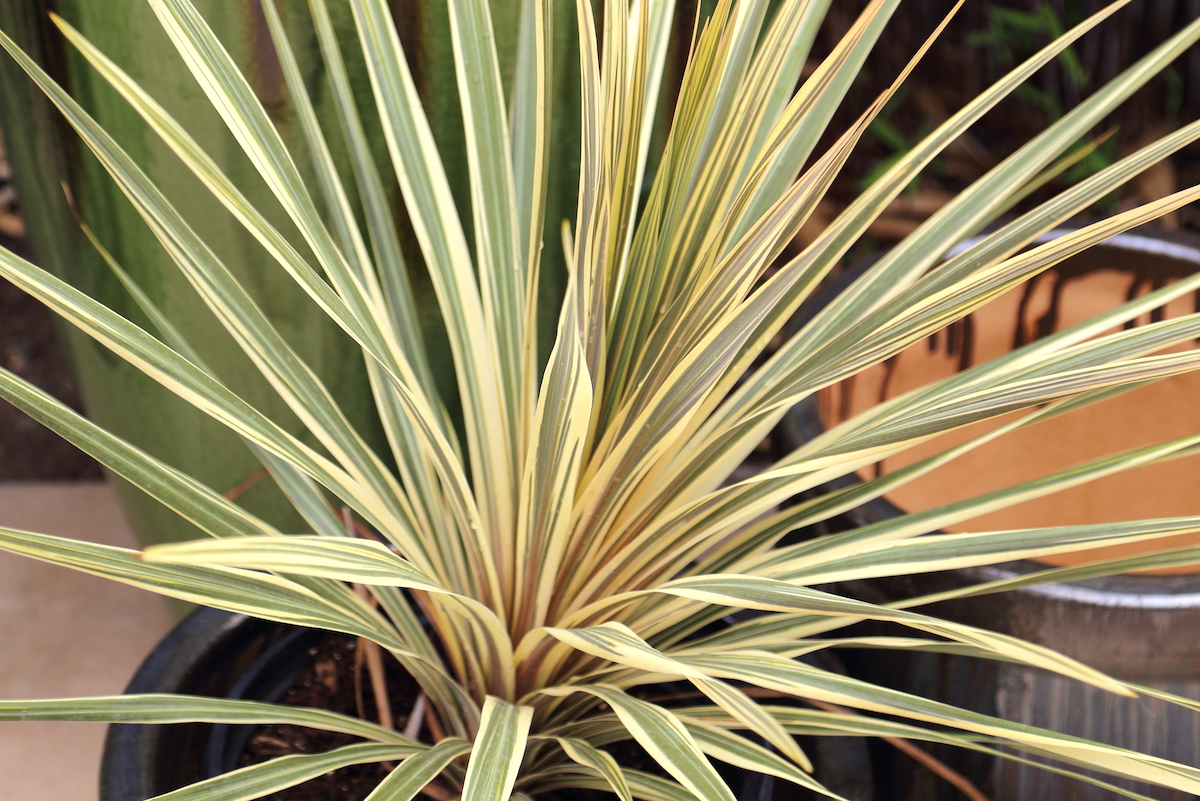
Yucca 'Bright Star'
Are there toxic non-succulent houseplants?
Yes. Keep pets away from begonias, cycads, geraniums, lilies, philodendron, poinsettias, pothos, dracaena, ivy, certain herbs (mint, oregano, parsley, tarragon, marjoram), and schleffera. Btw, African violets are considered safe.
Which succulents are OK?
Among common succulents listed as nontoxic to pets include Aeonium, Beaucarnea recurvata (ponytail palm), Echeveria, Gasteria, Haworthia, Sempervivum, stapeliads, burro's tail sedum, Schlumbergera, Lampranthus, Opuntia, Peperomia and Lithops.
Bottom Line: Use common sense
Obviously it's not a good idea to risk having a pet eat any houseplant. Another reason to keep plants and pets apart is soil spillage---either by accident or "Cool! A litter box!" Cats knock over vases by nosing bouquets. Puppies chew anything. Even a hanging basket may bring out a cat's inner leopard.
Types of Succulents from Aeonium to Zebra Plant, Photos & IDs
Debra’s Dozen Easy-Grow Succulent Plants for Beginners
Trying to make sense out of succulents? There are numerous varieties, but these are the most common succulents and those you’ll likely run across. Enjoy growing and discovering these fascinating “plants that drink responsibly!”
The post Are Your Succulents Toxic to Pets? appeared first on Debra Lee Baldwin. Copyright © Debra Lee Baldwin.
from Debra Lee Baldwin https://ift.tt/g0Gzuc7
via IFTTT

-custom_crop.jpg)
No hay comentarios:
Publicar un comentario